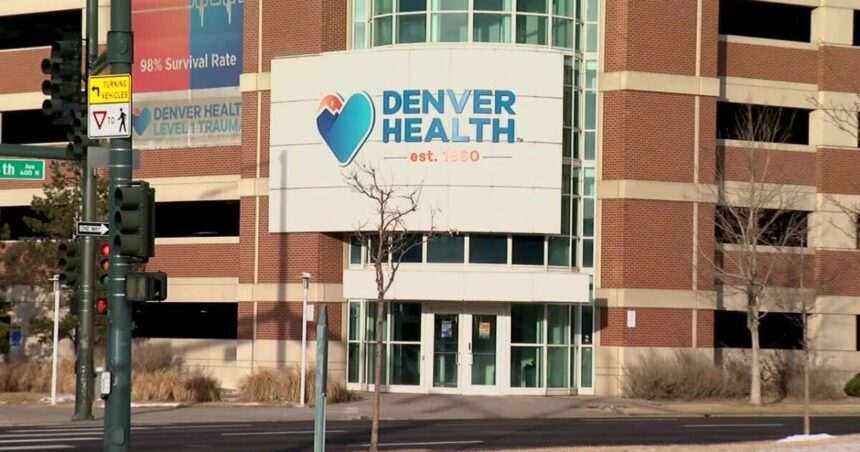DENVER — This fall, voters may be asked to increase the city’s sales taxes to help a struggling hospital stay afloat.
The money would be used to help Denver Health, which has been struggling financially in recent years due to skyrocketing healthcare costs and a growing number of uninsured patients seeking care.
“I think a lot of individuals roll the dice, hope that they’re not going to get sick, but when they are sick, they often present themselves to Denver Health,” said Donna Lynne, Denver Health’s CEO.
A proposal to increase the city’s sales tax by .34% passed a city council committee without any opposition on Wednesday. It will now be considered by the full city council.
If the council approves the measure, it would be placed on November’s ballot for voters to consider.
Lynne said since 2019, the amount of care the hospital has provided but received no payment for has increased dramatically.
“It’s gone from $42 million in 2019 to $103 million in 2023,” Lynne said. “Our projection is it’ll be $124 million by next year.”
Denver Health
Lynne said Denver Health, which is the largest safety net hospital in the state, has taken several actions to tighten its belt, including implementing a hiring freeze and changing employee benefits mid-year.
She said the state also provided about $11 million in the last two years.
But it’s still not enough.
That’s why Denver Health is asking for a ballot measure to increase the sales tax.
“Today our budget’s $1.4 billion. We get $30 million from the City and County of Denver,” said Lynne. “We’re happy. We like that relationship. But we really think that money has to increase and that’s part of the purpose of us asking for a sales tax.”
If approved, the sales tax would add about three cents to every $10 some spends in Denver.
It would bring in about $64 million a year.
She says without the sales tax increase, the hospital may have to cut services or personnel.
“And that really pains me to say that,” said Lynne.

Denver Health
Lynne said about 200,000 of the patients Denver Health cares for every year visit the hospital’s clinics.
“We have clinics in 29 locations [and] 19 of them are in our Denver Public Schools,” said Lynne.
They also have four mobile units that travel to different parts of the city providing primary care and other services such as mammograms.
One of the stops the mobile units make is in the Westwood neighborhood in Southwest Denver.
Mariana Del Hierro, the executive director of Re:Vision, a nonprofit that focuses on cultivating food systems, said since 2022 the mobile units have stopped by once a week and provided care to community members who would otherwise go without it.
She said community members were hesitant at first to visit the mobile units when they began showing up, but over time the visits have increased.
She’s happy Denver Health stuck around.
“They kept coming every week, every week, building that trust, building that relationship,” said Del Hierro. “We are one of the sites that is the highest utilized.”
She said if Denver Health were ever forced to cut or reduce the services the mobile units provide, it would be devastating.
“We would hate to start from zero again if those programs were cut,” said Del Hierro.
She hopes voters will approve the ballot measure to help Denver Health get the funding it needs.
Since 2018, voters in Denver have approved sales tax increases to pay for everything from homelessness to preschool to climate protection.
At a hearing on Wednesday, Denver City Councilman Kevin Flynn said other sales tax initiatives may appear on the ballot in November.
“The combined total of all those would raise the city’s sales tax overall to 9.61%,” said Flynn. “I have a serious concern about overburdening taxpayers.”
Lynne said she understands taxpayers may be wary of another increase.
“I’m concerned, but I’m optimistic,” she said.
Lynne said the sales tax proposal didn’t happen overnight.
“We’ve spent about nine months gathering input from a lot of stakeholders, business leaders, former elected officials, and community organizations, both educating them about Denver Health, but also trying to see what kind of solutions they would have,” said Lynne. “That group of 30 community business and government leaders said you need a dedicated funding source.”
If the council approves the ballot measure and if voters approve it in November, the sales tax would go into effect on January 1.

The Follow Up
What do you want Denver7 to follow up on? Is there a story, topic or issue you want us to revisit? Let us know with the contact form below.











